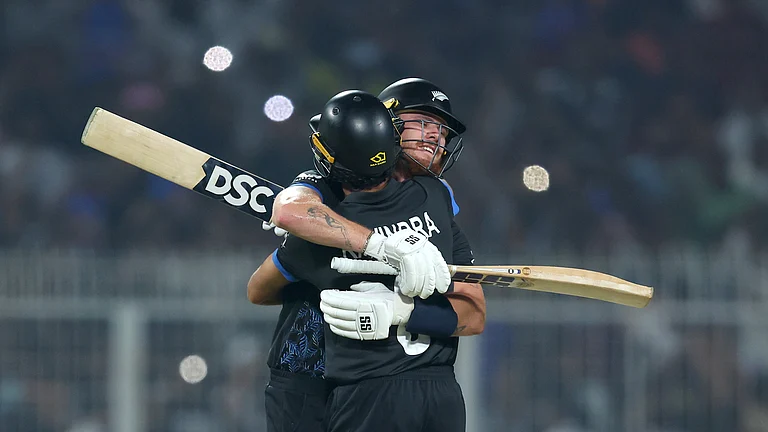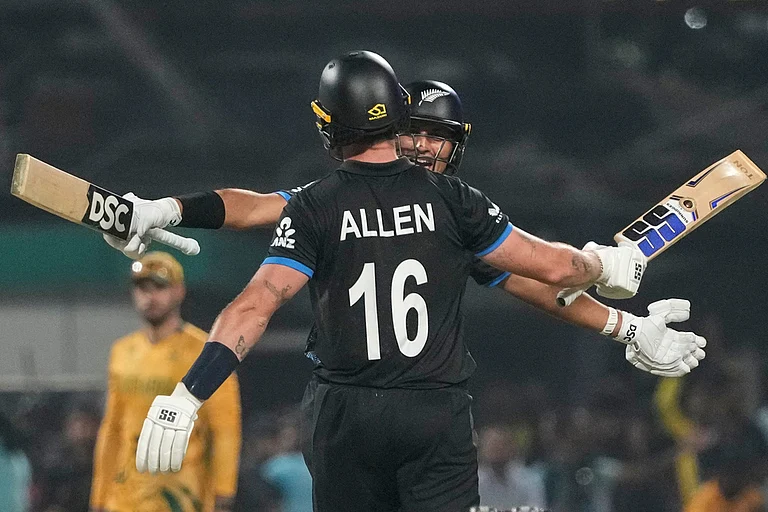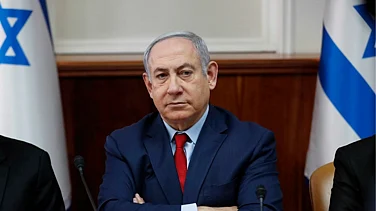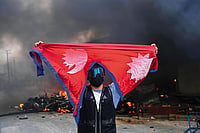The Sri Lankan Prime Minister Ranil Wickremesinghe has invited the top official of the United Nations World Food Programme (WFP) to visit the country as it grapples with an impending food shortage, with experts warning of a possible shortage of rice and other essentials from September because of lower production.
The fall in production is being seen as an impact of President Gotabaya Rajapaksa's ban on fertilisers in April 2021 and inability to import sufficient food amid the country's worst financial crisis. Prior to the fertiliser ban, Sri Lanka was self-sufficient in rice production.
Wickremesinghe said he spoke to David Beasley, the Executive Director at the UN WFP on Friday.
"He accepted my invitation and is planning to visit shortly. We appreciate all the support extended to us by the WFP," said Wickremesinghe in a tweet on Friday.
The UN on Friday appealed for $47.2 million to provide life-saving assistance to crisis hit Sri Lanka, as it noted that shortage of medicines and surgical consumables will ease in the medium term with the support of a credit line from India and other partners.
The UN team in Sri Lanka and non-governmental organisations launched the joint Humanitarian Needs and Priorities Plan on Thursday, calling for $47.2 million to provide life-saving assistance to 1.7 million people worst-hit by the economic crisis in Sri Lanka over a four-month period of June-September.
Additionally, the International Monetary Fund (IMF) is also planning to send an in-person mission in the coming weeks to Sri Lanka for policy discussions on a financial arrangement, its spokesman has said but emphasised that the country needs to take steps to restore debt sustainability before IMF can move on a financing programme.
"Clearly Sri Lanka is facing a very difficult economic condition and severe balance of payments problems. We are deeply concerned about the impact of the ongoing crisis, particularly the humanitarian concern, that is the impact on people," said IMF spokesperson Gerry Rice at a briefing on Thursday.
Meanwhile, India has also provided a $55 million line of credit to Sri Lanka for the import of fertilisers in a bid to help the country tide over its food scarcity, the Indian High Commission said on Friday.
Earlier this month, Wickremesinghe met senior officials of the Food and Agriculture Organization as well as the UN Development Programme (UNDP) and briefed them about the situation faced by the country. He lamented that fertilisers and fuel shortage are the two biggest hurdles facing the country’s agricultural sector.
Addressing the Parliament on Tuesday, Wickremesinghe said Sri Lanka will need $5 billion to ensure that the people's daily lives are not disrupted for the next six months.
The nearly bankrupt country, with an acute foreign currency crisis that resulted in foreign debt default, announced in April that it is suspending nearly $7 billion foreign debt repayment due for this year out of about $25 billion due through 2026. Sri Lanka's total foreign debt stands at $51 billion.
In May, the IMF said it requires sufficient assurance from Sri Lanka that it will restore debt sustainability during the debt restructuring process.
Sri Lanka is facing acute foreiegn exchange crisis, which has led to an acute shortage of vehicular fuel, cooking gas, staple food items, essential medicine, and even thermal fuel, which has caused great difficulties to people, who have been plunged into long power cuts and have been forced into long lines for essentials such as vehicular fuel and cooking gas.
(With PTI inputs)





















